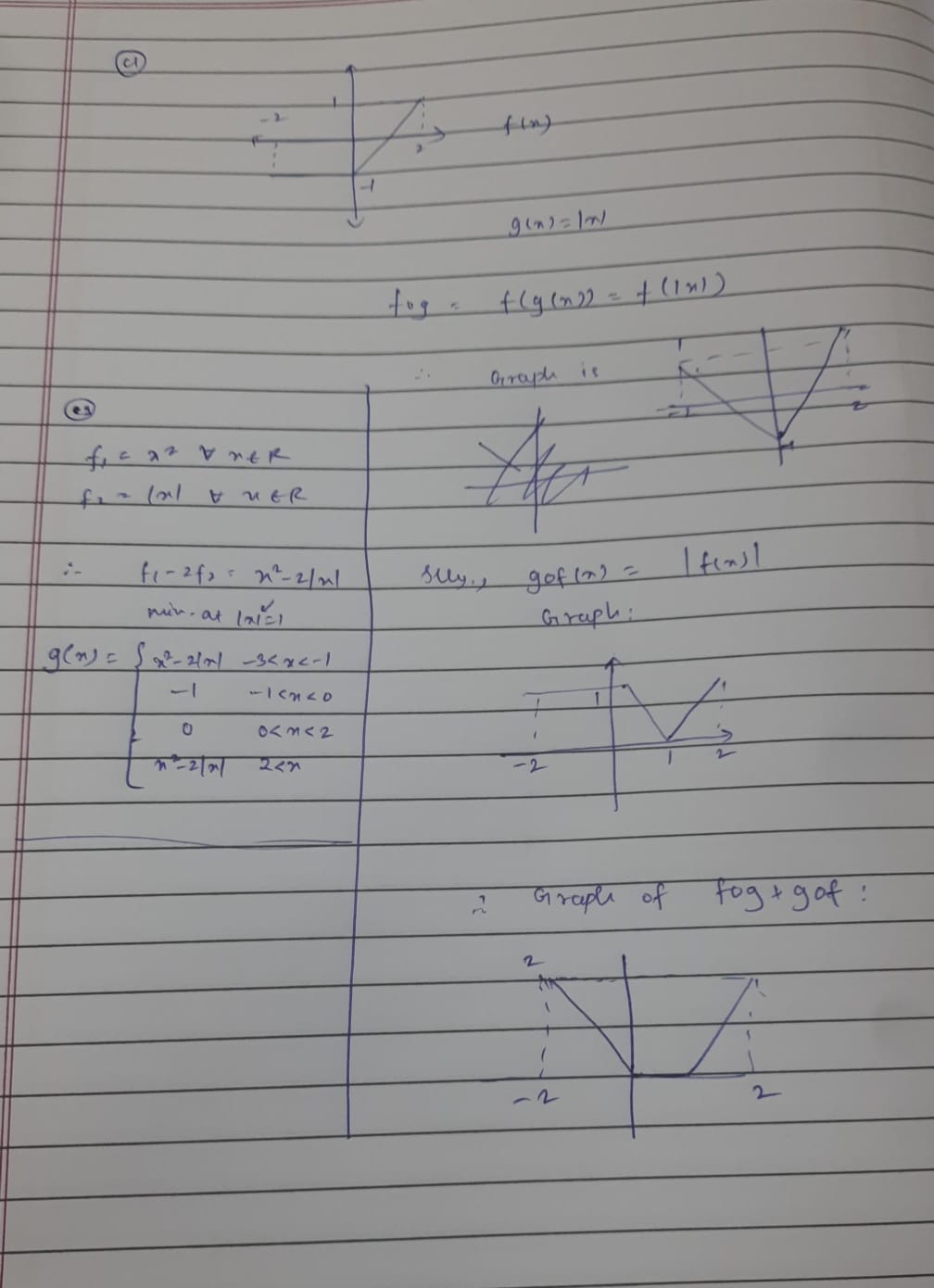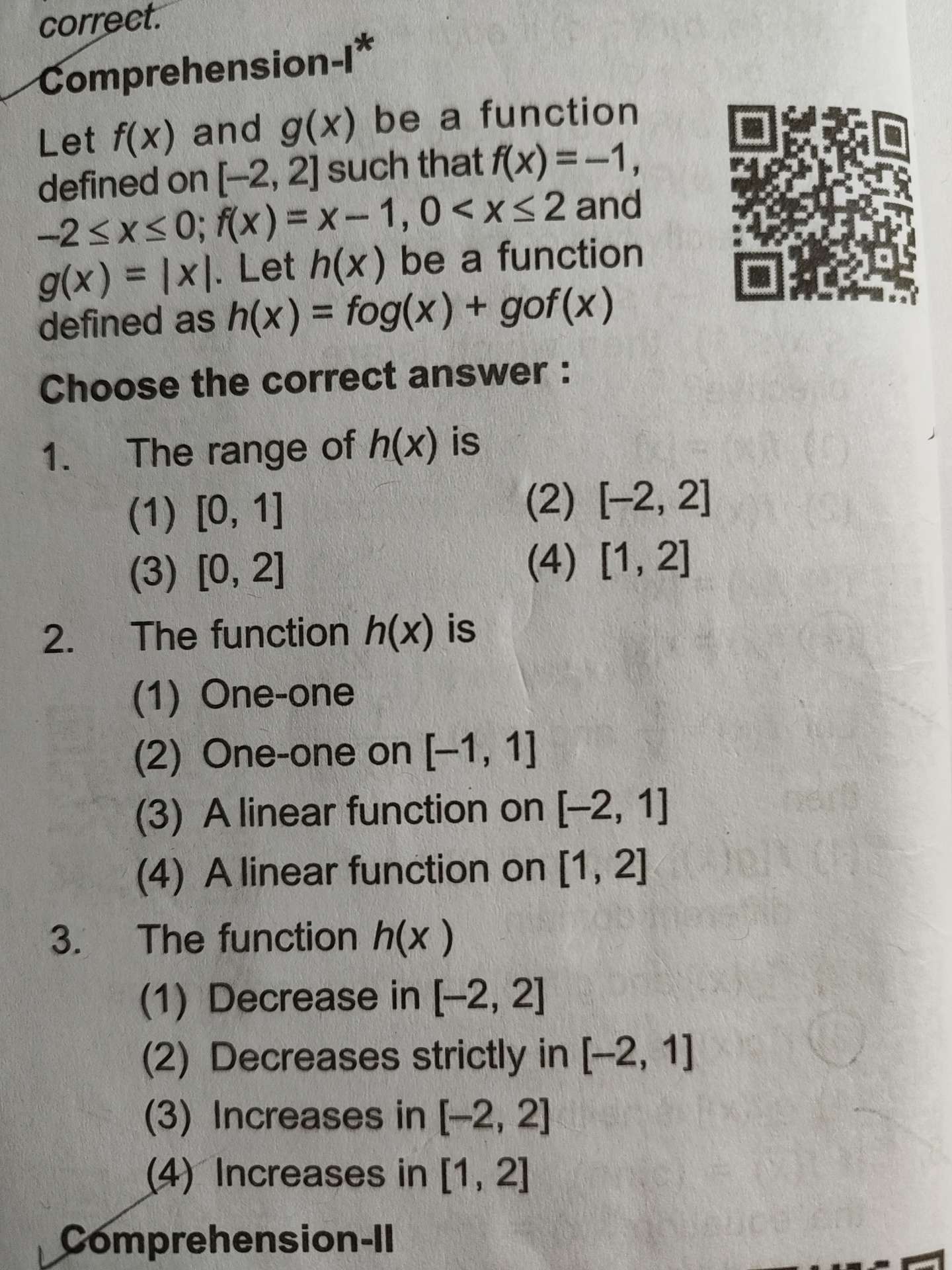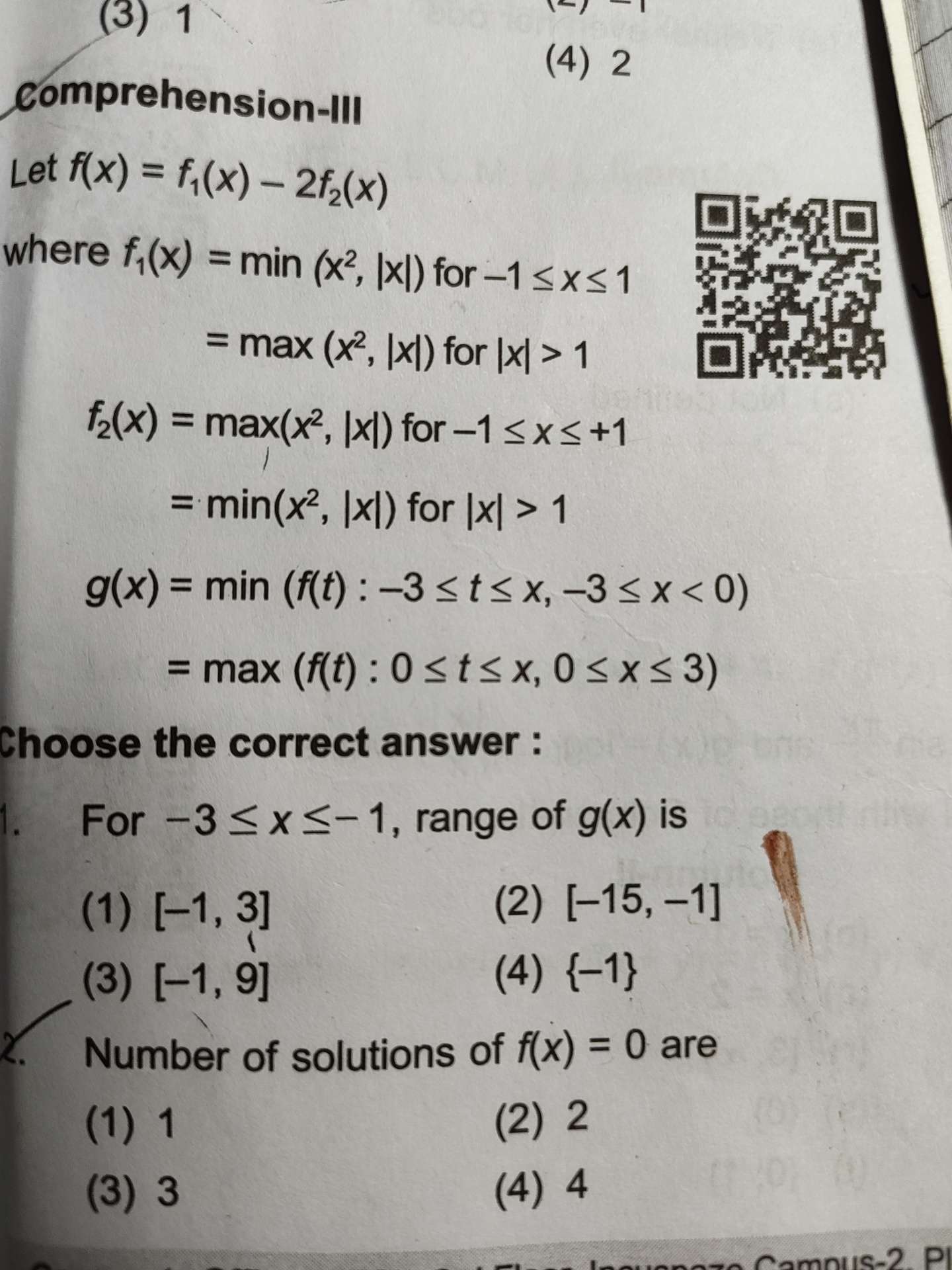20 Replies
@Apu
Note for OP
+solved @user1 @user2... to close the thread when your doubt is solved. Mention the users who helped you solve the doubt. This will be added to their stats.For the first one, write it as f(|x|)+|f(x)|. And then caseworking or graphical approach would give you the graph of h(x).
yahi to nahi hota na ji
please explain kaise karrte hai ye
2-3 hafte se nahi kara to bhul gaya hu ab
Wait Imma try and find a pen and paper
thenkuu
My apologies for the poor quality of graphs, but it would be something like this 😭
oooooooooooo ok so how do define the functions tho
thats also something i forget at times like
the process of defining it
fog and gof
fog (sounds like f o' (of) g) is f of g which is f(g(x))
how wll we define gof here
Hello.
yoyo hepl
In this case, g(x) is modulus function
g(f(x)) = |f(x)|
Wherever there's an x, replace it with a f(x)
Then sub in your f(x) with the necessary boundary conditions
Sorry for the delay, but the questions and graphs would look something like this.

Or you could have also defined the fog and gof over various intervals and then added them to get the result.
you good?
ooooo yea im done wth this i forgor about this hehe
+solved @SirLancelotDuLac
Post locked and archived successfully!
Archived by
<@964432960197632059> (964432960197632059)
Time
<t:1748655457:R>
Solved by
<@1075951732460376214> (1075951732460376214)

